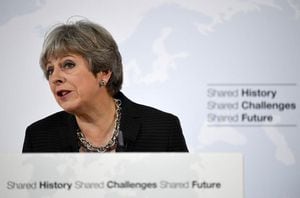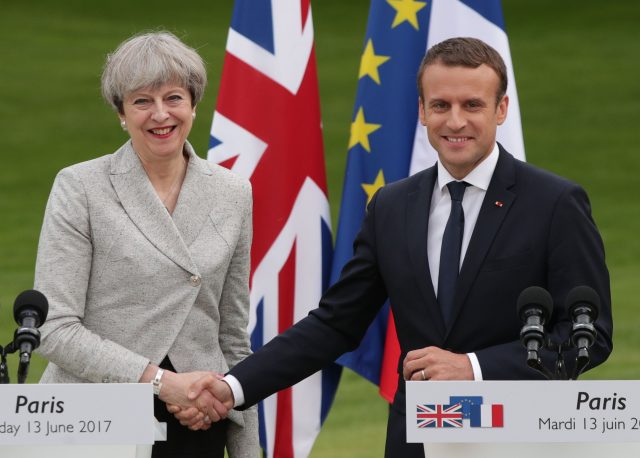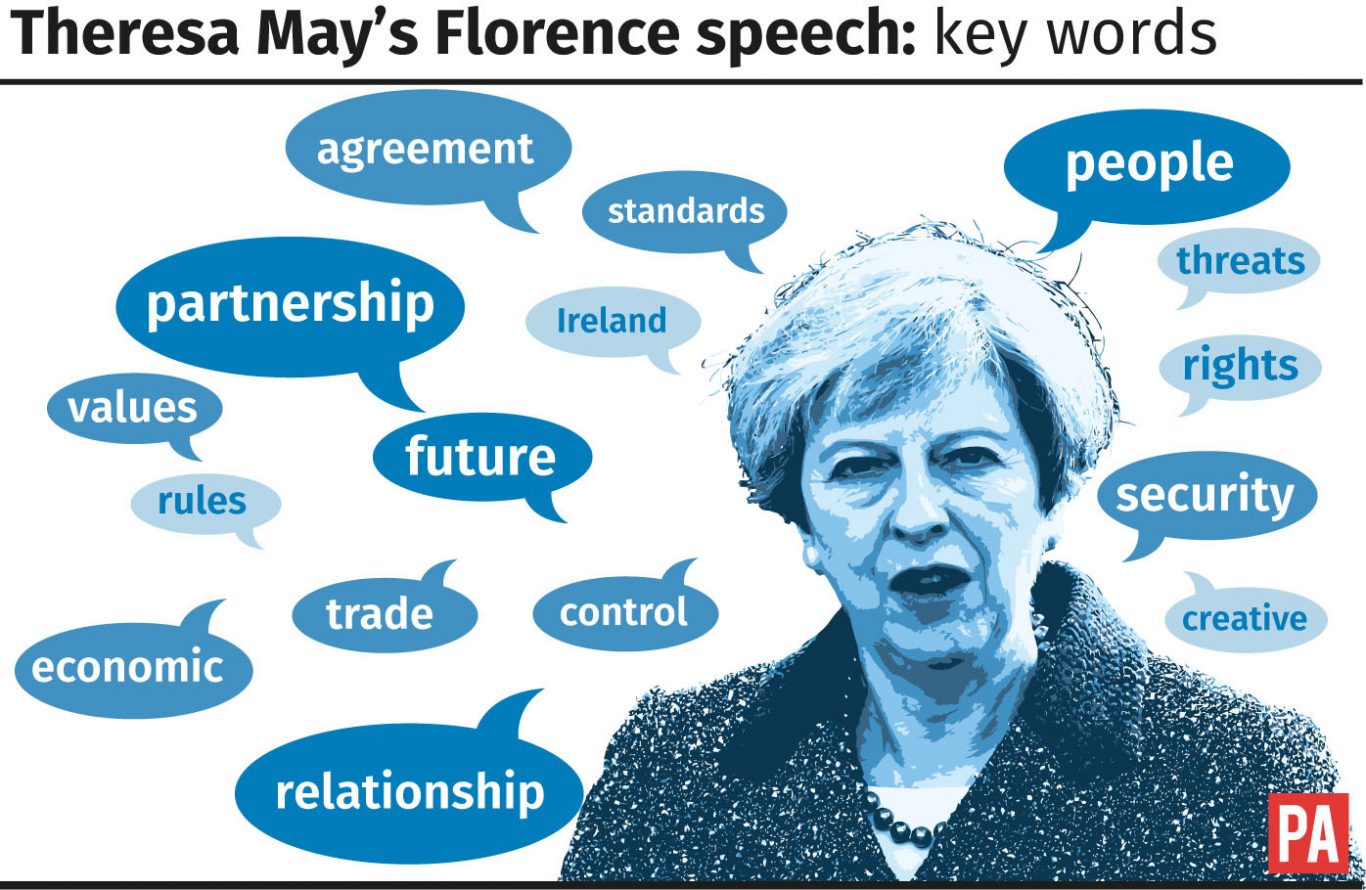Anger as French leader demands more clarity from May to break Brexit deadlock
Downing Street had hoped her keenly awaited address would end the stalemate in Brussels.

Pro-Brexit Tories have reacted angrily after French president Emmanuel Macron warned Theresa May she needed to provide greater clarity over Britain’s position if she wants to break the deadlock in the stalled Brexit talks.
In a keynote speech in Florence on Friday, the Prime Minister set out her offer to continue paying into EU coffers for a two-year transition period after the UK leaves in 2019, during which EU nationals would remain free to settle in Britain.
Downing Street had hoped her keenly awaited address would end the stalemate in Brussels and enable the talks to move on to Britain’s future relations with the EU – including a free trade deal.
However, speaking in Paris, Mr Macron said that while he welcomed Mrs May’s “willingness” to move forward, more progress was needed on the rights of EU citizens in Britain and the border with Ireland as well as the so-called “divorce settlement”.
“Before we move forward, we wish to clarify the issue of the regulation of European citizens, the financial terms of the exit and the question of Ireland,” he said.
“If those three points are not clarified, then we cannot move forward on the rest.”
His comments echoed those of the EU’s chief negotiator Michel Barnier who welcomed the “constructive spirit” of her speech but said her assurances needed to be translated into a “precise negotiating position”.

The senior Conservative backbencher Bernard Jenkin said the French president was being unreasonable in demanding such detail at this stage of the negotiations.
“How can we put money on the table when we don’t know what the deal is? How can we discuss how the finer details of the Northern Ireland border should operate when the EU won’t even begin to discuss what the relationship is that they want between the UK and the EU?” he told the BBC.
Under Mrs May’s proposals, the UK could pay around £18 billion into the EU budget during a two-year transition in which the UK would continue to have access to the single market and EU nationals would remain free to move to Britain – although they would have to register with the UK authorities.
She also promised the rights of EU citizens living in the UK would be written into British law and proposed a “bold new strategic agreement” on future security co-operation.
Czech Europe secretary Ales Chmelar warned, however, that the final divorce bill would be significantly higher than the £18 billion it is said the UK would have to be prepared to pay for access to EU markets.
“This is just a payment for the remaining financial framework period. This is not a payment for all the legacies that we see including for example the pensions and the legacies in terms of grants and funds,” he told the BBC Radio 4 Today programme.
“It is quite a normal thing that when you have a certain advantage of access to a market you also have to pay for it. This is a very important part that cannot be ignored.”

Meanwhile there was concern among some pro-Brexit Conservatives that Mrs May had given too much ground to Brussels in her efforts to get a deal
Backbencher Jacob Rees-Mogg said she had failed to make clear whether the UK would remain subject to the European Court of Justice (ECJ) during the transition period.
“To my mind that is an absolutely red line,” he told BBC 2’s Newsnight.
“If after March 2019 we are still subject to the ECJ we have not left the European Union and that would be undermining the (EU referendum) vote we had in 2016.”





